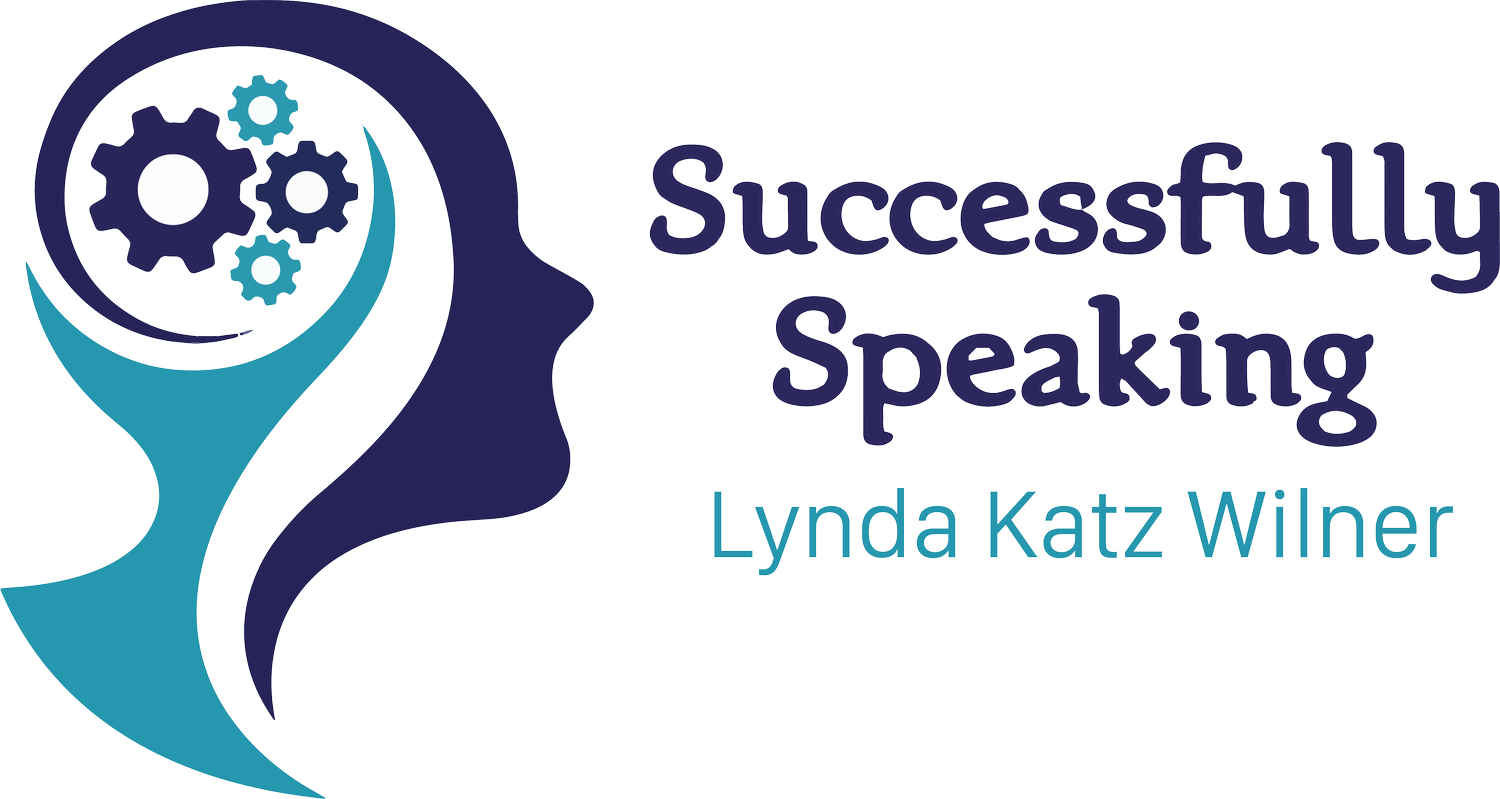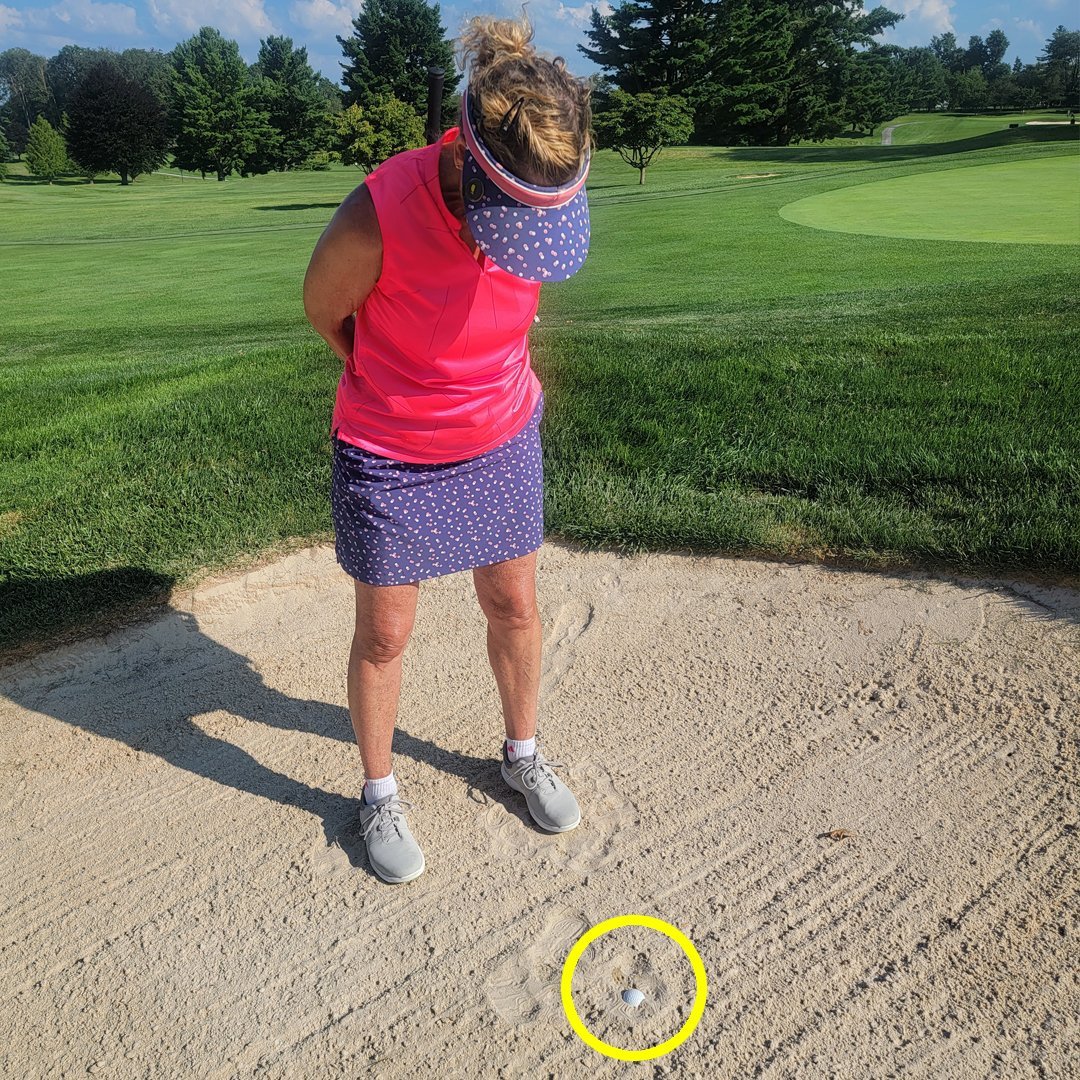Tee Up Your Speech: Golf is Like Public Speaking Tips 21-25
What are some more ways golf is like public speaking?
Tip #21: Don't Dwell on What Went Wrong
Keep moving forward. We’re often judged by how we deal with adversity.
In golf, of course, it could be frustrating if you hit your ball into the sand trap, water, or out of bounds. Perhaps you had a poor swing, and you hardly got any distance. So what? Why complain about it? Go to your ball or where you lost it and move forward. It's more important what you do next. If we focus too much on what went wrong, it will affect us on the next shot.....and... who wants to play with a complainer?
In public speaking, so many issues can go wrong. We can have a multitude of technical difficulties or environmental conditions at the venue (too hot, too cold, too noisy, etc.) It's more important to acknowledge the problem and quickly move on. Complaining to our audience will make us look less professional. Our audience will be more impressed with our flexibility and attitude when dealing with unforeseen issues.
What have been some of your greatest challenges?
Tip #22: When There's a Mishap, Take on the Challenge
Our thoughts and attitudes often influence golf and public speaking.
In golf, there are numerous mishaps and mis-hits (at least in my game!) Look at these as opportunities to practice something new. Your ball is in the rough? How can you get it back on the fairway? Are you in the sand? Now you can practice how to get it out. How can we reframe our thoughts to keep us "in the game" when things don't go our way?
In public speaking, many things can happen that are beyond our control. It can give us an opportunity to pivot and try something different. Perhaps the sound system isn't working properly. Take that opportunity to walk closer to your audience. What if we cannot get on the internet to show our video? Now, we can talk about it and send them the link later. Always have alternate plans so you can move on fairly seamlessly.
What have been some of your challenges while speaking/presenting?
Tip #23: Stay Out of the Weeds
In golf, we certainly don't want to hit into the rough, weeds, or woods! We all know it's a lot easier to hit from the fairway! And who wants to take a penalty stroke?
In public speaking, it's critical that we speak to our audience's level and tailor our talk for them! We should do research ahead of time to understand our audience. What do they need to hear? Will they understand it? How can we make it easy for them to hear our message? Can we explain it with a story that will resonate with them? A good exercise is to see if you can explain it to a child, so they understand. A story helps us remember the content and context.
Stay out of the weeds! (Unless you are speaking with colleagues, and they speak the same "language"). I often teach my clients to BLUF their talk (Bottom Line Up Front). This is often a challenge for technical or scientific presentations or when speaking up the ladder to leadership. What is the bottom line? They may not need all of the details. Speak in a clear and succinct manner. Your audience can always ask questions for clarification.
<Video>
Tip #24: Know When to Move On
In golf, when you lose your ball, know when to reset and move on. No one wants you to spend more than three minutes searching for a ball. In fact, that is the USGA 's (United States Golf Association) rule. If you think you may not be able to find your ball, you should play a provisional ball. If you lose a ball in the creek or lake, even if you see it, if you cannot retrieve it quickly, move on! Your friends will appreciate it....so will the foursome behind you!
In public speaking, if you are having problems, be sure you have a "provisional ball," your Plan B and C. This could mean technical glitches during your presentation, or even a person in the audience who is constantly asking questions or taking too long to ask a question. Know ahead of time how you could deal with that. Your audience will thank you.
What are some ways you can control an audience member who is monopolizing the Question & Answer time? Think about strategies ahead of time. You can invite them to discuss it privately after the talk. After you answer the first question, make eye contact with a different part of the audience. Think of other strategies so you can be ready to move on if this situation occurs.
Tip #25: Don't Assume You Can Get a 'Gimme'
In golf, our friends/competitors may not always give us a 'gimme' (a short putt conceded by an opponent, but still counted as a shot). It will depend on the stakes; is it a competition or a friendly game or are we attempting to move faster because there is a foursome close behind? We can't assume.
In public speaking, we must prove ourselves every time. We can't always rest on our laurels because we did well last time. Each presentation is fresh, and we must give it our best effort, regardless of how we performed the previous time. Of course, our reputation precedes us, but we still cannot assume it will be great without dedicating preparation time. There are no ‘gimmes’ in public speaking!
Hit ‘em straight. Reach out to me if you have questions about how to master your public speaking skills.
Lynda
Lynda Katz Wilner, MS
Speech and Communication Trainer/Coach




